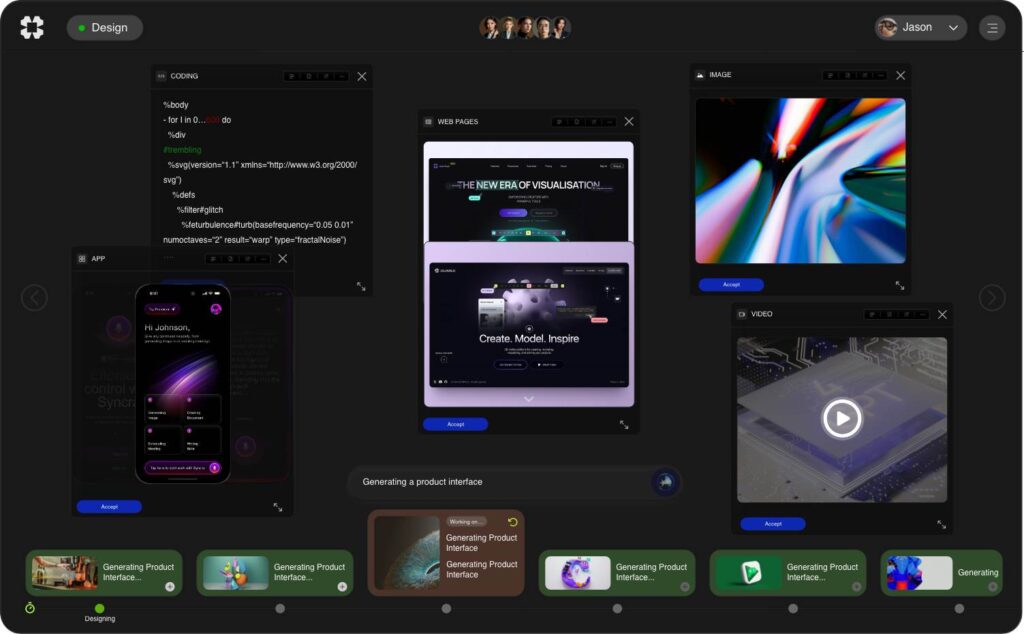In today’s fast-paced business environment, organizations across various sectors are increasingly adopting AI-driven solutions to enhance productivity and efficiency. This shift is known as Full Work Automation, a strategy that encompasses AI digital transformation and AI-based task automation. As we explore the latest trends, applications, and insights into this practice, it’s evident that companies embracing these innovations are poised for remarkable growth and operational success.
.
**Understanding Full Work Automation**
Full Work Automation refers to the comprehensive integration of artificial intelligence into business processes, allowing organizations to automate entire workflows. This process involves leveraging AI technologies to handle various tasks that were once performed by humans, resulting in reduced manual effort and optimized productivity. Increasingly, Full Work Automation is becoming a key pillar of digital transformation strategies in businesses.
.
**The Role of AI Digital Transformation**
AI digital transformation is the process of assimilating AI technologies into business models to create enhanced value. This encompasses a range of applications, including data analytics, machine learning, and process automation. The primary goal is to use AI to reshape how companies operate, engage customers, and compete in the marketplace.
A significant aspect of AI digital transformation is its potential to revolutionize customer experiences. Businesses utilizing AI can offer personalized recommendations, automate customer service through chatbots, and analyze consumer behavior to tailor marketing initiatives. As a result, companies not only retain their existing customer base but also attract new clients through enhanced engagement strategies.
.
**AI-Based Task Automation: Redefining Work Dynamics**
AI-based task automation is a subset of Full Work Automation that focuses on automating specific tasks rather than entire workflows. It employs machine learning algorithms and robotic process automation (RPA) to complete repetitive tasks quickly and accurately. From data entry to email parsing and scheduling, AI-based task automation can free employees from mundane activities, allowing them to focus on higher-value work.
Companies are employing AI bots to manage tasks that consume time and resources. For example, in the financial sector, AI is being utilized to automate invoice processing and compliance reporting. By reducing the manual workload, organizations can ensure accuracy and compliance while significantly lowering operational costs.
.
**Key Trends in Full Work Automation**
1. **Cloud-Based Solutions**: The shift of automation tools to the cloud allows for greater scalability and accessibility. Organizations no longer have to invest in expensive hardware, as cloud platforms offer on-demand resources that businesses can scale as needed. This shift is especially beneficial for small and medium-sized enterprises (SMEs) that require powerful tools without heavy investments.
2. **Increased Integration of AI**: As machine learning technologies evolve, there is an increase in the sophistication of AI applications. Businesses are adopting more advanced AI tools capable of understanding context, sentiments, and user needs. This advancement allows for nuanced task automation and enhanced decision-making processes, leading to improved operational outcomes.
3. **Focus on Cybersecurity**: With the growing reliance on automated systems, organizations are becoming more aware of cybersecurity risks. Companies are investing in secure automation frameworks, data encryption, and AI systems designed to predict and mitigate threats. This trend emphasizes the importance of safeguarding information while still taking advantage of automation benefits.
4. **Human-Machine Collaboration**: Rather than replacing human workers, Full Work Automation facilitates collaboration between humans and machines. AI tools are designed to assist employees, enabling them to be more productive. Organizations are finding ways to combine the creativity and emotional intelligence of humans with the processing power and efficiency of AI.
.
**Industry Applications of Full Work Automation**
1. **Manufacturing**: Automation in manufacturing is not new; however, the recent integration of AI technologies has taken operational efficiency to new heights. Smart factories equipped with AI are able to monitor production lines in real-time, identify bottlenecks, and predict maintenance issues before they cause downtime. Companies like Siemens and General Electric are at the forefront, utilizing AI to optimize supply chains and production processes.
2. **Healthcare**: The healthcare industry is leveraging AI-driven automation to streamline patient care. AI-based applications can analyze patient data for early disease detection, automate appointment scheduling, and even assist in diagnostics. For instance, companies like Zebra Medical Vision are using AI to interpret medical imaging, drastically reducing the time it takes to provide diagnoses.
3. **Retail**: Retailers are increasingly turning to automation to enhance customer experiences. AI-powered chatbots provide immediate assistance to shoppers, while inventory management systems utilize predictive analytics to ensure stock levels are optimized. Amazon’s use of automated warehouses showcases how AI can enhance logistics beyond traditional methods.
4. **Finance**: Financial institutions are embracing automation to improve operational efficiency and customer service. AI systems can analyze transaction patterns to detect fraud, automate loan processing, and provide personalized investment advice. JPMorgan Chase’s COiN program utilizes AI to analyze legal documents, allowing for faster decision-making in compliance.
.
**Technical Insights on Implementing Full Work Automation**
Implementing Full Work Automation requires strategic planning and consideration of several technical aspects:
1. **Data Infrastructure**: Organizations need robust data infrastructure to support AI solutions. This includes data collection, storage, and processing capabilities. Companies must ensure that data is cleaned, structured, and accurately represented to train machine learning models effectively.
2. **Choosing the Right Tools**: The diversity of automation tools on the market necessitates careful selection. Organizations should evaluate their current needs, future scalability, and ease of integration with existing systems. Industry leaders often leverage a mix of proprietary solutions and open-source tools to achieve optimal results.
3. **Change Management**: Transitioning to an automated work environment requires an investment in change management strategies. Educating employees about the benefits of automation, providing training, and fostering a culture of innovation are vital to minimizing resistance and ensuring a smooth transition.
4. **Performance Metrics**: To measure the effectiveness of automation initiatives, organizations should establish clear performance metrics. This might include tracking productivity increases, cost reductions, and customer satisfaction scores. Regular assessment will allow companies to refine their automation efforts and achieve continuous improvement.
.
**Conclusion: The Future of Work in an Automated World**
Full Work Automation, powered by AI digital transformation and AI-based task automation, is reshaping industries across the globe. By embracing these technologies, organizations can enhance efficiency, streamline processes, and foster better experiences for both employees and customers. Companies that recognize the transformative power of automation will be well-positioned to thrive in an increasingly competitive landscape.
As we look towards the future, collaboration between technology and human intelligence will be fundamental. With the right implementation strategies and a focus on ethical AI use, the workplace of tomorrow will not only be automated but will also be a space where human potential can flourish alongside machines.
.
**Sources**
1. Deloitte Insights – “AI and the Future of Work”
2. McKinsey & Company – “The State of AI in Business”
3. Gartner – “Embracing Full Work Automation in Business”
4. Forrester Research – “The Rise of AI-Based Task Automation”
5. Harvard Business Review – “How AI is Changing Business Models and Operations”





















